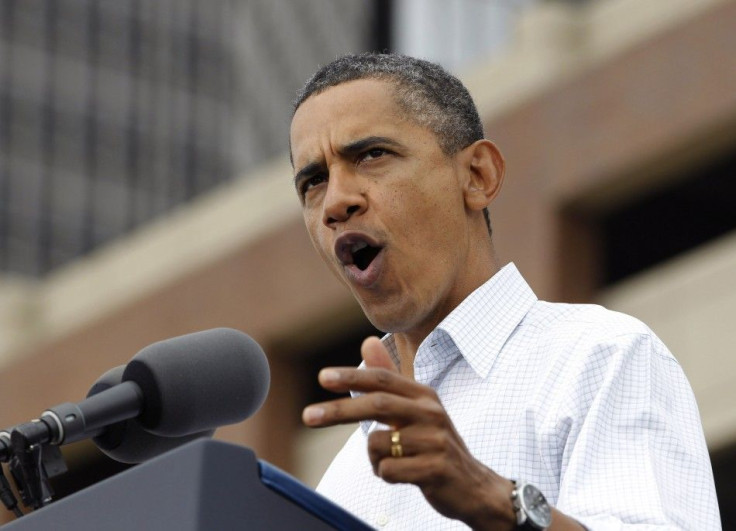Obama previews jobs speech, challenges Republicans

President Barack Obama previewed proposals on Monday for new infrastructure spending and an extension of payroll tax cuts as part of a major jobs package he will unveil this week, and challenged Republicans to find common ground with him.
Obama used a Labor Day rally with cheering union workers in economically hard-hit Detroit to set a combative tone before his nationally televised speech to Congress on Thursday, signaling he is ready to confront Republicans over their resistance to his agenda.
We're going to see if congressional Republicans can put country before party, Obama told a campaign-style gathering of about 13,000 in a General Motors parking lot. Show us what you got. The time for Washington games is over. The time for action is now.
Obama's jobs speech has taken on new urgency after Friday's Labor Department report, which showed zero employment growth in August and the jobless rate stuck at 9.1 percent.
The dismal numbers stoked fears the economy could slide back into recession and underscored for Obama, whose popularity ratings are near the lows of his presidency, that his 2012 re-election chances hinge heavily on whether he can reignite the recovery and spur job creation.
On Thursday, we're going to lay out a new way forward on jobs to grow the economy and put more Americans back to work, Obama said in an appearance also aimed at re-energizing labor supporters who helped him win the 2008 presidential election.
A FEW SPECIFICS
The White House has taken care to guard most specifics of the plan Obama will lay out before a joint session of Congress.
But Obama told his audience the package would include projects for rebuilding roads, bridges and other infrastructure across the country to put construction workers back on the job. Republicans who control the House of Representatives have resisted such ideas as wasteful spending.
There is work to be done and there are workers ready to do it. Labor is on board. Business is on board. We just need Congress to get on board. Let's put America back to work, Obama said.
Obama said he would also push Congress to extend soon-to-expire payroll tax cuts to spur hiring and put more money in Americans' pockets.
A payroll tax holiday for workers and extended unemployment benefits were enacted in a bipartisan package in December. Obama called earlier this year for a continuation of both measures through next year.
Congressional Republicans have been lukewarm on the idea, with some saying the White House should focus on measures such as broad tax reform that would have a more lasting impact on the economy.
Obama also used his Detroit visit to try to rally support from the labor movement, which backed him heavily in the 2008 race but has shown signs of disappointment with some of his economic policies since he took office.
Richard Trumka, president of the 12 million-member AFL-CIO, the largest labor coalition, urged Obama last week to act with boldness with an ambitious jobs program and said unions would be judging his plan as they decide where to throw their support in the campaign.
Other ideas under review include tax breaks for businesses to encourage hiring, a mortgage relief program to help struggling homeowners and training program to help the long-term unemployed at no cost to companies.
Obama got an enthusiastic reception in Detroit -- the audience greeted him and interrupted him several times with chants of Four more years.
Obama touted the benefits of his administration's 2009 decision to bail out Detroit-based automakers General Motors and Chrysler. The Obama administration says its intervention helped save more than 1 million jobs within the auto sector and other industries it supports.
Despite that, the unemployment rate in Detroit was 14.1 percent in July, the latest month for which statistics were available. It is the largest city in Michigan, expected to be a battleground state in the 2012 election.
© Copyright Thomson Reuters 2024. All rights reserved.





















